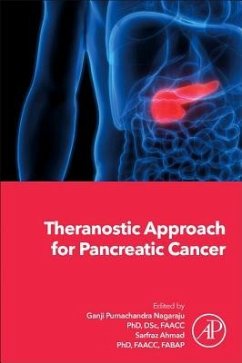
New Targeting in the Reversal of Resistant Glioblastomas
Volume 14
Herausgegeben: Arbab, Ali Syed

PAYBACK Punkte
60 °P sammeln!
New Targeting in The Reversal of Resistant Glioblastomas discusses alternative treatment strategies that not only target tumor cells but also target the tumor microenvironment, metabolic pathways and interaction of cytokines in tumor cells. The current treatment for primary and recurrent glioblastomas is failing because clinicians are not considering the effect of bone marrow derived cells to the development of resistance to clinically practiced therapies. This book helps readers rethink treatment strategies to successfully fight glioblastomas. It is a valuable resource for cancer researchers,...
New Targeting in The Reversal of Resistant Glioblastomas discusses alternative treatment strategies that not only target tumor cells but also target the tumor microenvironment, metabolic pathways and interaction of cytokines in tumor cells. The current treatment for primary and recurrent glioblastomas is failing because clinicians are not considering the effect of bone marrow derived cells to the development of resistance to clinically practiced therapies. This book helps readers rethink treatment strategies to successfully fight glioblastomas. It is a valuable resource for cancer researchers, clinicians, graduate students and other members of the biomedical field.












